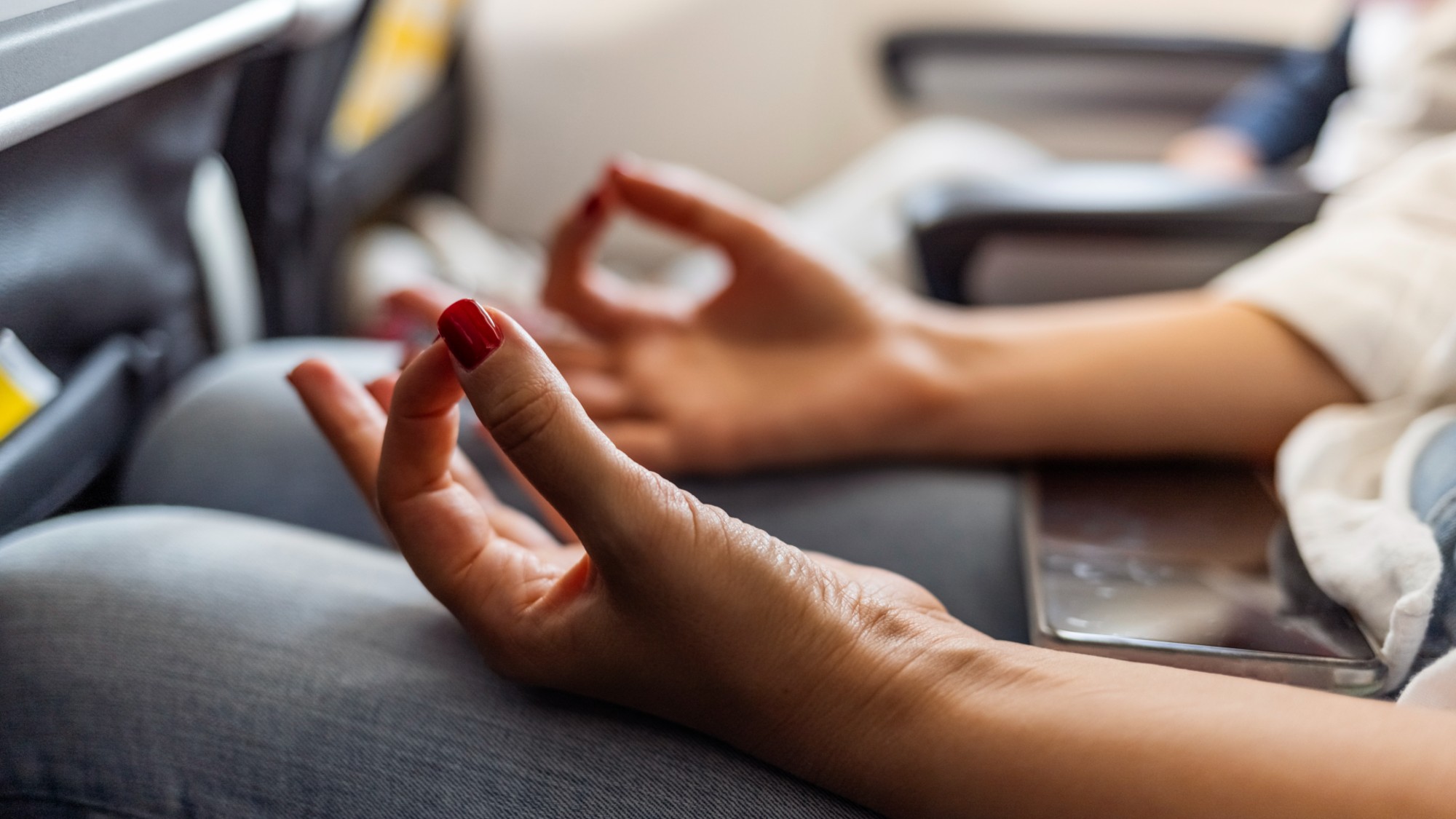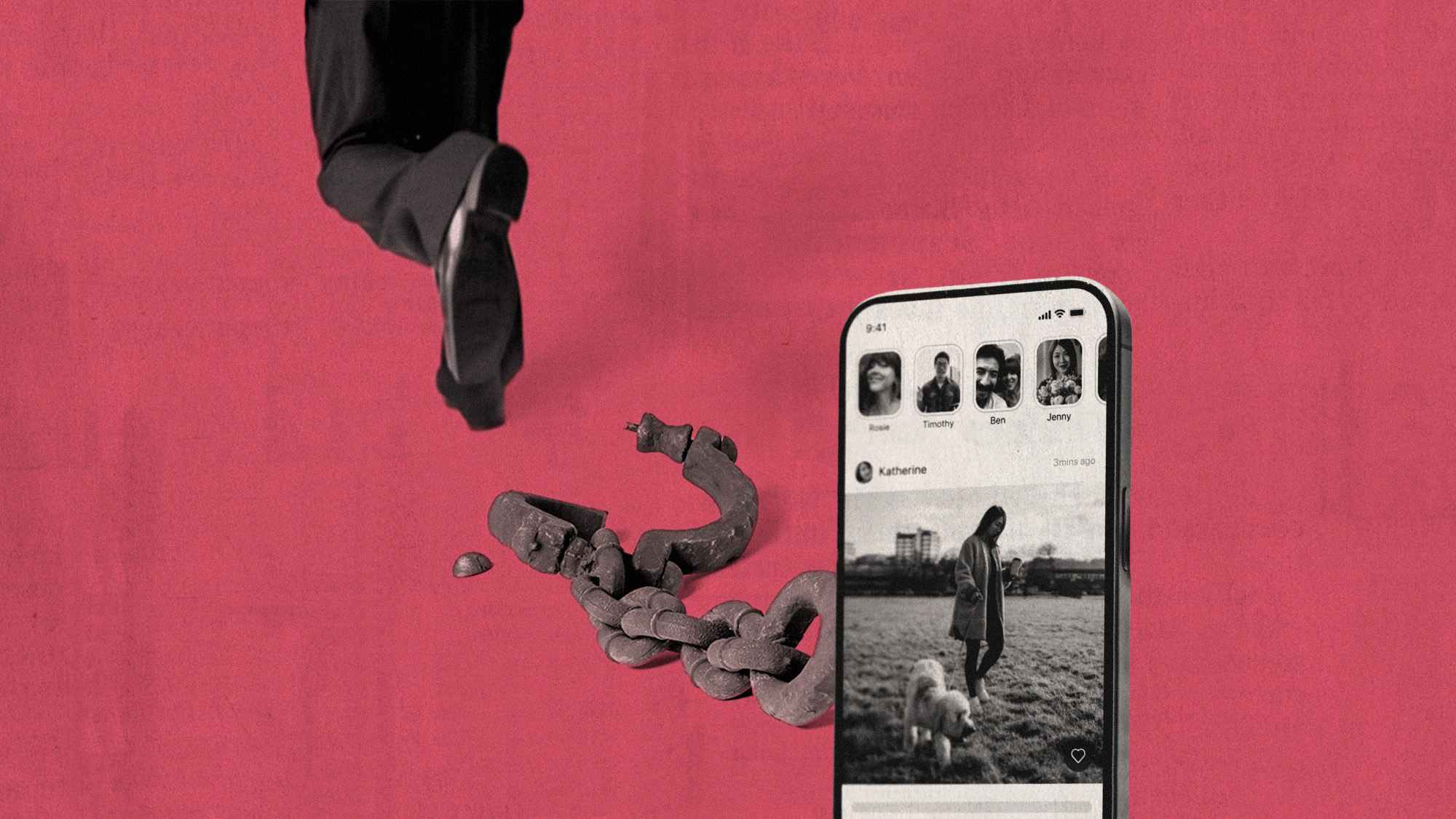Fly like a breeze with these 5 tips to help cope with air travel anxiety
You can soothe your nervousness about flying before boarding the plane


A free daily email with the biggest news stories of the day – and the best features from TheWeek.com
You are now subscribed
Your newsletter sign-up was successful
In the wake of several recent airplane crashes and near-incidents involving commercial flights over the past few months, your fear of flying may understandably be spiking. Here are some ways to help maneuver any anxiety that might be holding you back from using one of the safest modes of transportation there is.
Figure out the root cause
Before even boarding an airplane, explore your phobia's emotional origins. "This might involve understanding past experiences on turbulent flights, hearing stories as a child that exacerbated your fear, or related beliefs that may have contributed to the fear," Jenny Maenpaa, a licensed clinical social worker and founder of the New York City Psychotherapy Collective, said to Travel and Leisure. Deeper introspection can "reveal hidden triggers," and "confronting these through psychodynamic therapy that brings the past into the present can be transformative."
Try exposure therapy
An effective means of overcoming more extreme cases of aerophobia is "through gradual exposure and learning how to calm your nervous system," Abrah Sprung, a licensed clinical psychologist, said to Travel and Leisure. You can begin slowly, by "watching videos of planes taking off" before visiting an airport and "build up to taking a flight." Facing your fear retrains your brain to respond with "confidence instead of panic."
The Week
Escape your echo chamber. Get the facts behind the news, plus analysis from multiple perspectives.

Sign up for The Week's Free Newsletters
From our morning news briefing to a weekly Good News Newsletter, get the best of The Week delivered directly to your inbox.
From our morning news briefing to a weekly Good News Newsletter, get the best of The Week delivered directly to your inbox.
Enlisting a therapist who specializes in treating phobias through exposure therapy can be highly effective because it involves gradually "exposing people to the source of their fear in a safe and controlled environment," psychologist Shmaya Krinsky said to Time. Virtual reality can also play a helpful role in administering exposure therapy, he added.
Know the facts
Commercial planes remain mostly safe, recent headlines aside. Midair collisions could be a pilot's biggest fear. Still, it is important to remember that midair collisions make such big news because they are rare, said Martin O'Loughlin, president and chief operating officer of Cornerstone Aviation, an FAA-authorized flight school, to the Los Angeles Times. In almost every case, the "design of the airspace and the rules that the FAA uses to design arrivals and departures is very, very good," said O'Loughlin, acknowledging that more planes flying and fewer air traffic controllers have put a strain on the industry. It is hard to "build an impenetrable wall against our fears, but you don't have to latch onto those fears and dwell on them."
Avoid certain triggers
Certain elements can exacerbate your anxiety, even if you think they would help. Unfortunately, "alcohol and sugar are not the solutions to anxiety," said Erin Weinstein, a hypnotherapist and psychotherapist, to Travel and Leisure. It may be hard to accept, but "consuming a drink or sugary food before a flight can actually increase your anxiety despite providing temporary relief." Alcohol and sugar cause your blood sugar levels to spike. That spike "leads to your heart racing." The "jittery sensation you experience may feel like panic," but it is "just your body reacting to what you've consumed," Weinstein said. If you struggle with flight anxiety, you may start to associate this "jittery" feeling with flying, "potentially triggering a spiral of distressing thoughts."
Take a deep breath
If you find yourself actively dealing with anxiety, gain control of your breathing through "slowing inhalation through the nose and exhalation through the mouth," said National Geographic. Multiple rhythms or breathing techniques could work, but "the key is to slow the breathing rate and focus on a pattern." Controlled breathing "kickstarts the body's relaxing mechanisms, as the slower pace helps re-regulate heart rate and temperature."
A free daily email with the biggest news stories of the day – and the best features from TheWeek.com
Adding focused patterns "allows for what is commonly called grounding in psychotherapy, or the ability to connect to the present moment." The controlled breathing allows the "mind to remain in the present where we are free from the outcomes we are worried about," neuroscientist Brian Ramos said to National Geographic. Anxiety is "oriented to future outcomes. They are not happening right now."
Theara Coleman has worked as a staff writer at The Week since September 2022. She frequently writes about technology, education, literature and general news. She was previously a contributing writer and assistant editor at Honeysuckle Magazine, where she covered racial politics and cannabis industry news.
-
 Switzerland could vote to cap its population
Switzerland could vote to cap its populationUnder the Radar Swiss People’s Party proposes referendum on radical anti-immigration measure to limit residents to 10 million
-
 Political cartoons for February 15
Political cartoons for February 15Cartoons Sunday's political cartoons include political ventriloquism, Europe in the middle, and more
-
 The broken water companies failing England and Wales
The broken water companies failing England and WalesExplainer With rising bills, deteriorating river health and a lack of investment, regulators face an uphill battle to stabilise the industry
-
 ‘Zero trimester’ influencers believe a healthy pregnancy is a choice
‘Zero trimester’ influencers believe a healthy pregnancy is a choiceThe Explainer Is prepping during the preconception period the answer for hopeful couples?
-
 ‘Longevity fixation syndrome’: the allure of eternal youth
‘Longevity fixation syndrome’: the allure of eternal youthIn The Spotlight Obsession with beating biological clock identified as damaging new addiction
-
 Stopping GLP-1s raises complicated questions for pregnancy
Stopping GLP-1s raises complicated questions for pregnancyThe Explainer Stopping the medication could be risky during pregnancy, but there is more to the story to be uncovered
-
 RFK Jr. sets his sights on linking antidepressants to mass violence
RFK Jr. sets his sights on linking antidepressants to mass violenceThe Explainer The health secretary’s crusade to Make America Healthy Again has vital mental health medications on the agenda
-
 Tips for surviving loneliness during the holiday season — with or without people
Tips for surviving loneliness during the holiday season — with or without peoplethe week recommends Solitude is different from loneliness
-
 More women are using more testosterone despite limited research
More women are using more testosterone despite limited researchThe explainer There is no FDA-approved testosterone product for women
-
 Tips for seizing control of your digital well-being
Tips for seizing control of your digital well-beingThe Week Recommends A handy mix of technology and self-motivation
-
 Climate change is getting under our skin
Climate change is getting under our skinUnder the radar Skin conditions are worsening because of warming temperatures
